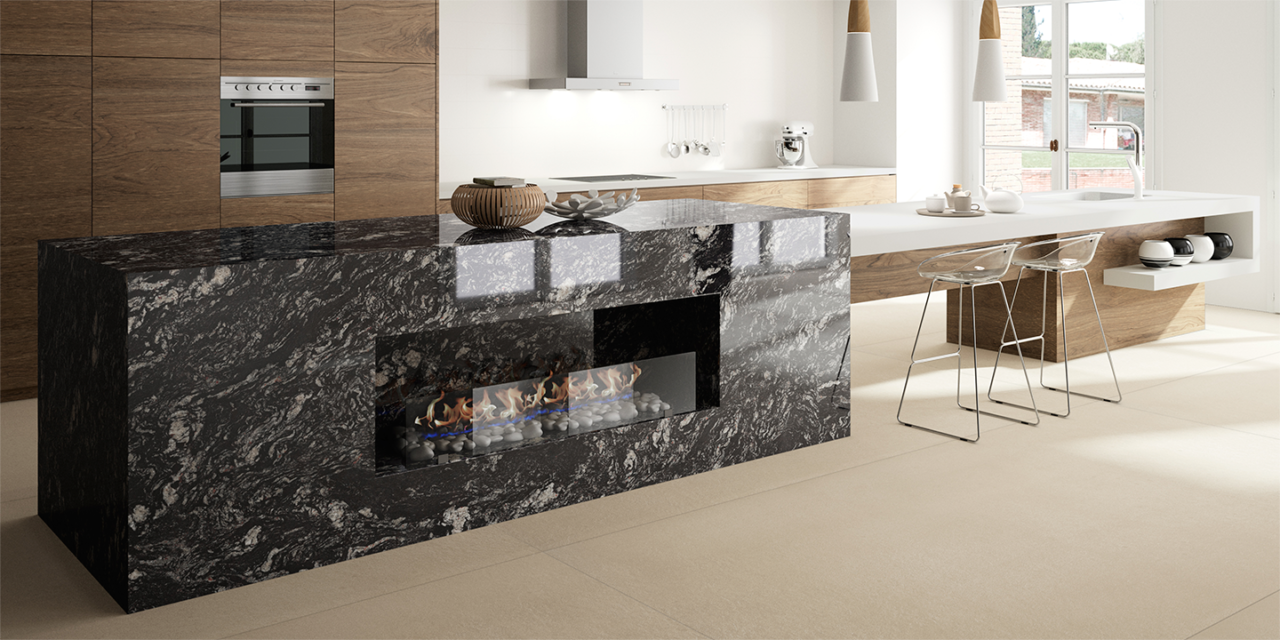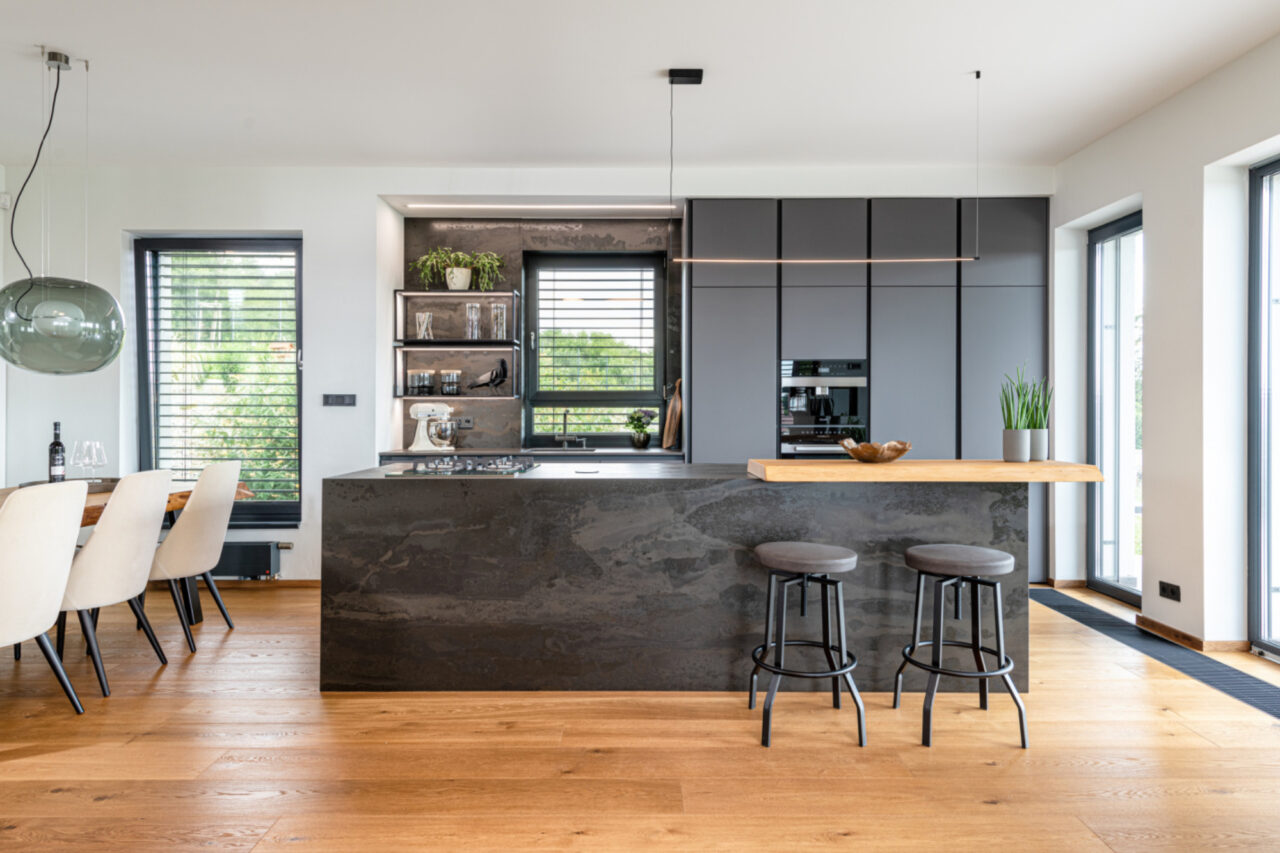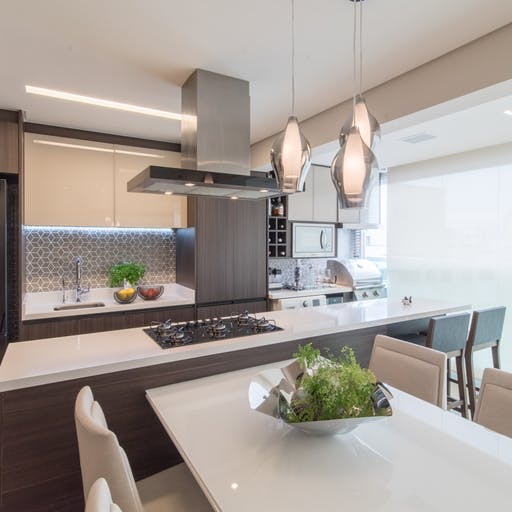The best stone worktops: which one is right for you?
Choosing the right kitchen worktop material is tough. But, if you’ve already narrowed down your choice to stone, you’re halfway there.
And what a great choice you’ve made! Stone worktops have a premium look and feel. They come in some beautiful designs and last for years.
And stone is so versatile. It can be cut into shapes, have drainer grooves and can be used with flush-mounted hobs and undermount sinks. There’s a wide choice of colours available too, so you’ll be able to find one to suit your style.
So, which is the best stone worktop for you?
Well, there are several stone materials to choose from which can be split into two categories: natural stone and engineered stone. And they both then have their own list of different materials.
To help you pick the best stone worktop for your home and lifestyle, here’s a run-down of the materials available.
Natural stone worktops
Natural stone worktops are exactly as the name suggests. They are pieces of stone that have formed naturally in the ground. The stone is drilled and blasted out of quarries in large blocks. It’s then cut into worktops by special milling machines and finished off by being polished or treated, depending on which type you buy.
The beauty of natural stone worktops is that they are unique – because they are naturally formed in the ground, no two pieces are ever the same. So, if you do choose to buy a natural stone worktop, always go and pick the exact slab of stone you’d like your worktop made from. Because, although the colours you see on a website or in a brochure will be close to what you get, the pattern won’t be.
There are two main natural stone worktop materials: marble and granite.
Marble worktops

Marble is often seen as an elegant, luxury material that’s easily recognised by large veins running through the stone. It adorns the walls and floors of all sorts of grand buildings so it’s no surprise it’s sought after for kitchen worktops too.
But you need to be aware that it’s a high-maintenance material – especially in a kitchen where wear and tear are likely to be high.
First of all, a marble worktop must be professionally sealed approximately every 6 months. That’s because it’s porous and prone to staining, scratching and chipping. It’s also not heat-proof, so will scorch if a hot pan is placed on it.
And, although the sealer will offer some protection, you still need to be careful. Wipe up spills quickly, use a chopping board for cutting, and a trivet for hot pans.
On the plus side, if you love making pastry or bread, marble is perfect as it stays cool to the touch, even in hot weather.
When it comes to colour choices, there’s a wider range then you may think. The most recognisable marble is white with grey veins. But it’s also available in blacks, blues, oranges and greens… and every colour in between!
In summary, if you’re a messy cook or have a family who might not treat your worktop with the love and care it needs, this probably isn’t the worktop for you.
If, on the other hand, you meticulously clean up as you cook, and always use chopping boards and trivets, then marble will be an excellent choice for your kitchen.
Granite worktops

Granite has been a popular material choice for worktops for decades. It typically has a fleck-like, granular pattern and attractive glossy appearance.
It’s harder and less porous than marble, which makes it a more durable choice. But like marble, it also needs to be professionally sealed, but only once a year.
When properly sealed, granite is stain and scratch-resistant, but not entirely heat-proof. So, you should always use a trivet for hot pans.
When it comes to colours, there isn’t such a large choice as marble, but the colours range from pale whites and beiges to dark greys and blacks.
In summary, we think granite will suit any home and any type of cook because it’s so tough and durable. And as long as you don’t mind the yearly maintenance, then you won’t be disappointed with its fabulous good looks in your kitchen.
Engineered stone worktops
Engineered stone worktops are made of natural stone. But rather than the stone being taken from the ground in whole pieces, it’s mined and ground down into small granules, then manufactured into a worktop. Different mixtures of stone are used depending on the worktop type.
The big benefit of engineered stone worktops is that they are incredibly tough and durable (even more so than natural stone). And, if you buy a branded worktop, they often come with long warranties.
There are two main engineered stone worktop materials: sintered stone and quartz.
Sintered stone worktops

Sintered stone worktops are made entirely of natural stone minerals. There are no man-made resins to glue the minerals together. Instead, they’re bonded by a revolutionary technology called ‘sintering’ – using extreme heat and pressure to replicate the process natural stone goes through in the earth’s crust.
The mix of stone in the worktops varies depending on the manufacturer and brand. Dekton® worktops by Cosentino, for example, are made of a blend of porcelain, glass and quartz.
The beauty of sintered stone worktops is they can be made to mimic all types of other materials. You’ll find colours and designs that look like marble, granite, concrete and even wood. This is perfect if you love the look of those materials, but not the maintenance or the price tag.
Quartz worktops

Quartz worktops are made from ground down quartz minerals which are bonded by resin. They have a stylish look that’s been a popular choice for kitchen worktops for decades.
But you do need to be careful when you buy quartz worktops as not all quartz is equal. Good quality branded quartz worktops, such as Silestone®, and Caesarstone®, are made of approximately 93% quartz and 7% resin.
But there’s been a flood of cheap quartz worktops on the market. They sometimes have only 60% quartz and as much as 40% resin. And while they may look ok when you first have them installed, you could run into all sorts of quality and performance issues later on.
When it comes to performance, a good quality branded quartz is one of the best stone worktops you can buy. It’s stain and scratch-resistant, easy to clean and maintenance-free.
The only negative is that quartz worktops aren’t heat-proof, so it’s recommended you protect them from hot pans and baking trays by using a trivet.
In summary, as long as you buy a good brand and are careful with hot pans, you can’t go wrong with a quartz worktop.
SEH Interiors have over 10 years’ experience supplying and fitting premium-quality sintered stone, quartz and acrylic kitchen worktops at affordable prices across the UK. If you need any help choosing the best stone worktop for you, please contact us. We’ll be happy to help.


